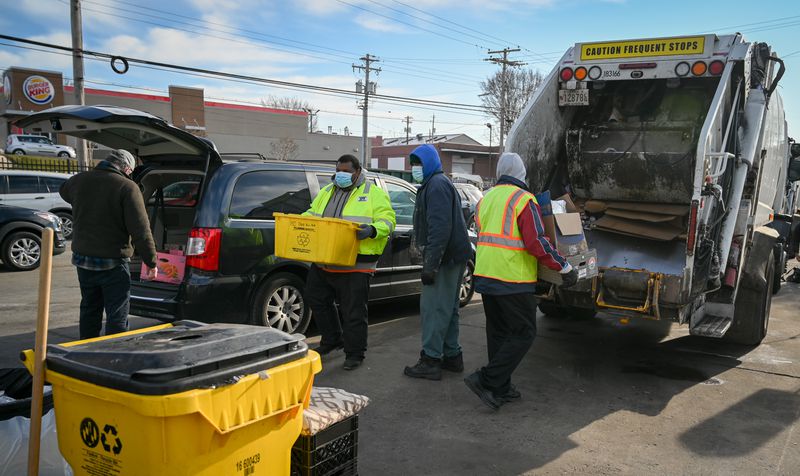The Baltimore Sun, Katherine Lugar, Washington, D.C. and Ellen Valentino, Annapolis. The writers are, respectively, president and CEO of the American Beverage Association and executive vice president of the Maryland-Delaware-DC Beverage Association.
Recycling rates in Baltimore have been below the national average for years. But Baltimore’s recent embrace of a bold and innovative public-private partnership could make it a blueprint for cities nationwide on how to ramp up the collection and remaking of recyclable materials for a true circular economy where products are remade instead of landfilled.
Many families in Baltimore have been using outdated, inadequate curbside recycling bins. The bins aren’t big enough to handle the usual amount of recyclable materials that households generate so many recyclable bottles and cans are wasted. That is about to change. Mayor Brandon Scott has announced plans to ensure equal access to recycling. This initiative will dramatically increase the amount of recyclable materials that are collected and recycled into new products, and protect the health and safety of materials collection workers.
Baltimore has become the latest city to take part in “Every Bottle Back,” an initiative by the beverage industry that joins together municipalities, environmental groups and businesses to invest in state-of-the-art collection systems and educational campaigns that makes recycling more effective. For our part, Every Bottle Back is helping our industry reduce its plastic footprint by increasing the amount of our plastic bottles that are collected so they can be remade into new bottles.
Together with The Coca-Cola Company, Keurig Dr Pepper, PepsiCo and national and global environmental groups The Recycling Partnership, Closed Loop Partners and World Wildlife Fund, we’re investing $1.65 million in Baltimore to upgrade its recycling system. This investment will help 205,000 households upgrade to lidded recycling carts that will be provided by the city to collect and process more recyclable materials. This modernization will also limit contact between sanitation workers and make for a safer recycling process.
The investment will result in the collection of 40 million pounds of new recyclables annually which amounts to an 80% increase of recyclables per household. Additionally, the program will create 29.6 million pounds of new recycled plastic over 10 years.
As industries and municipalities in Maryland join forces to upgrade recycling systems, the city will launch a new recycling campaign to assist with vulnerable communities that are impacted most by waste and litter.
Our hope is that Baltimore will serve as a model for Maryland and localities nationwide on how progress can be made through cross-industry partnerships and municipal collaboration.
To truly achieve a circular economy, we must all be environmental champions.







